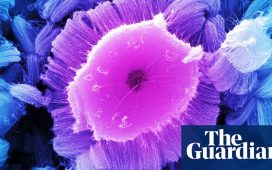KENNESAW, Ga. |
Aug 28, 2023
Senior biology student Katie Moerschel’s study on the effects of prenatal exposure to THC won the top prize on Thursday at the Birla Carbon Scholars Symposium.
Now in its 10th year, the Symposium marks the completion of an intensive summer research program
that allows students to apply their studies toward sponsored projects under the guidance
of Kennesaw State faculty scholars.
“Today is a celebration of many things,” said Vishnu Suppiramaniam, interim dean of the College of Science and Mathematics. “First, we recognize our students and their work throughout the summer, and second, we celebrate the continued partnership between Birla Carbon and Kennesaw State University that is highlighted by the Birla Carbon Scholars Program. Through this unique collaborative effort, we have seen our students investigate truly impactful topics that only serve to benefit their growth as researchers.”
Working in Suppiramaniam’s laboratory, Moerschel theorized the use of tetrahydrocannabinol, commonly known as THC, among pregnant people led to memory and learning issues in children via specific receptors in the brain. By exposing rats to THC and then putting them through mazes and other learning experiments, Moerschel discovered that the drug affected the rats’ learning. She added that little research on prenatal THC exposure exists and that it’s a field ripe for discovery.
“We’re hoping to create some groundbreaking research on THC because currently there’s only research on how cocaine affects those specific receptors,” she said. “We’re looking to educate the public on how ingesting marijuana during pregnancy can affect children and lead to the rising autism rates we see today.”
In the spring, the College of Science and Mathematics (CSM) selected 12 students to each receive a $4,000 stipend to pursue research during a summer program established by Birla Carbon, a worldwide chemical manufacturer.
The 12 scholars were chosen based on the recommendations of faculty members, submission
of an undergraduate research project abstract, and a GPA of 3.0 or higher. Recipients
worked with their sponsoring faculty members on their proposed research projects in
six departments within CSM.
This year’s scholars, their majors and faculty mentors included:
- Faith Arends, biology, mentored by Ramya Rajagopolan, assistant professor of cell biology
- Sarah Chang, biology, mentored by Graham Collier, assistant professor of chemistry and biochemistry
- Elizabeth Ehme, mathematics, mentored by Eric Stachura, assistant professor of mathematics
- Mahdi Ghasemi, biology, mentored by Mohammad Abdul Halim, assistant professor of chemistry and
biochemistry - Benjamin Gibbas, chemistry, mentored by Michael Stollenz, associate professor of inorganic chemistry
- Darmon Kahvazadeh, biology, mentored by Clint Penick, assistant professor of biology
- Ira Menich, chemistry, Graham Collier, assistant professor of chemistry and biochemistry
- Abby Moen, biology, Marina Koether, professor of chemistry
- Katie Moerschel, biology, Vishnu Suppiramaniam, interim dean and professor of biology
- Connor Muth, chemistry, Mark Mitchell, professor of chemistry and biochemistry
- Benjamin Nguyen, biology, Brandon Carpenter, assistant professor of molecular biology
- Mark Sheehan, biology, Christopher Cornelison, associate professor of microbiology
Since 2014, funds provided by Birla Carbon have enabled 93 Birla Carbon Scholars to
participate in research. This year marks the 10th cohort of scholars, and Birla Carbon
recently reaffirmed its pledge to the program by extending the agreement for another
five years and adding $325,000 to the commitment. Birla Carbon CEO John Loudermilk
said the company looks forward to the continued partnership as well as the Symposium,
a yearly event to showcase young scientists.
“After many years, the partnership between Birla Carbon and Kennesaw State University remains successful and has reached an unprecedented maturity level,” Loudermilk said. “Our Birla Scholars Program is one example, as many students from the College of Science and Mathematics apply each summer. To see the popularity and support from all is fulfilling in every sense.”
Along with the $4,000 stipend each scholar received, Moerschel received an additional $2,000 in travel funds to present her research at a national or regional conference.
About Birla Carbon
Birla Carbon is the world’s largest producer and supplier of carbon black additives, which are used to make everything from tires to plastics, from paints to electronics. A flagship business of the $45 billion Aditya Birla Group, the multinational conglomerate based in Taloja, India, Birla Carbon’s Technology Laboratories are located in Marietta and Taloja, India.
– Dave Shelles
Photos by Judith Pishnery
Related Stories
A leader in innovative teaching and learning, Kennesaw State University offers undergraduate, graduate and doctoral degrees to its more than 43,000 students. Kennesaw State is a member of the University System of Georgia with 11 academic colleges. The university’s vibrant campus culture, diverse population, strong global ties and entrepreneurial spirit draw students from throughout the country and the world. Kennesaw State is a Carnegie-designated doctoral research institution (R2), placing it among an elite group of only 7 percent of U.S. colleges and universities with an R1 or R2 status. For more information, visit kennesaw.edu.











